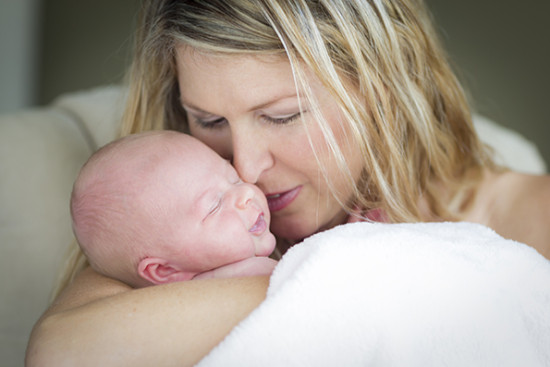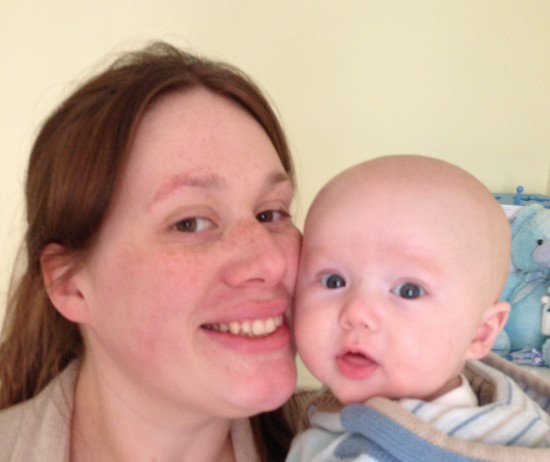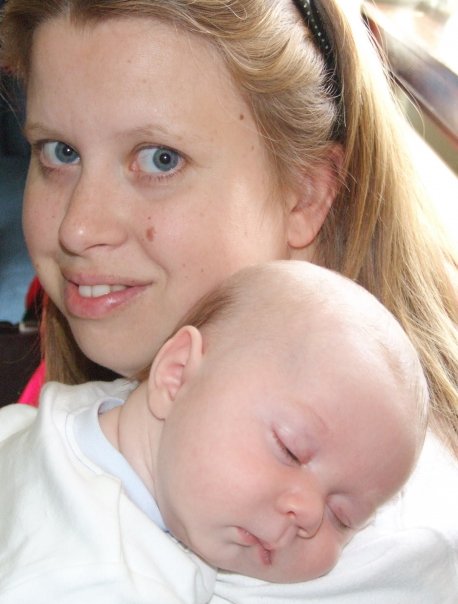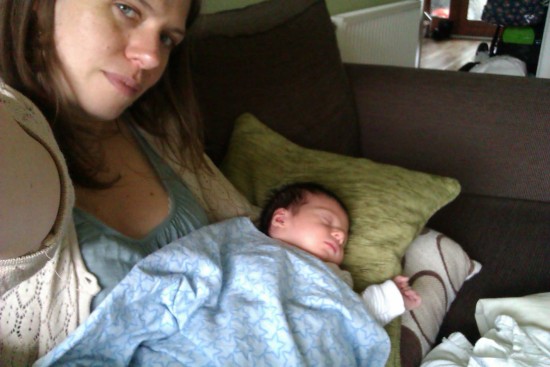We look at 10 things that are useful for every parent to know when it comes to feeding their baby.

One of your most important roles as a new parent will be feeding your baby, but it’s also a learning curve.
In the early weeks, parents can be surprised at how often babies feed. A breastfed baby tends to feed at least eight to 12 times in a 24-hour period and if they are fed whenever they show they’re hungry (read about feeding cues below), they can’t be overfed.
At first, they often feed more at night than during the day. If you feel that your baby is rarely happy at the breast, even after frequent, long feeds, or feeding is uncomfortable, ask for help as a change in their position or attachment to the breast could make a real difference.
If you’re using formula milk, the manufacturer will provide guidelines about the amount to give based on a baby’s weight and age. It’s also important to follow the instructions for the particular brand of formula you’re using.
If your baby is still unsettled, and they don’t appear to want more milk, you could try walking around with them, using a sling, singing and cuddling them.
It’s usually easier to feed your baby when they’re calm so it’s really useful to recognise their ‘early feeding cues’ – signals that they’re hungry – which they normally show before they start crying.
You might notice them putting their hands to their mouth or turning their head to the side, for instance.
But they normally regain their birth weight by two weeks old. Do check with your midwife or health visitor if you have concerns.
Your baby’s weight is also just one indicator that they are feeding well. For example, a healthy baby has good skin colour, is alert when awake, makes signs when they are hungry and is usually satisfied after feeding. The contents of your baby’s nappy can also tell you a lot.

Feeding can be challenging. Whether breastfeeding, formula feeding or combining the two, many parents have questions or concerns. It’s so important that you seek help as soon as you feel something isn’t right.
Bex Smith (pictured) from Welwyn Garden City NCT branch says: ‘Ask for help straightaway and demand it if you need to. I gave up breastfeeding after one week even though I really wanted to breastfeed. With more help, I think I could have continued.’ She recommends finding out what breastfeeding support is available in your area and visiting a drop-in before you have your baby.
With the right help and support, it is possible to overcome most feeding difficulties.
With the right help and support, it is possible to overcome most feeding difficulties. ‘After the first three months and various problems, something clicked, and I completely loved breastfeeding my daughter. I wasn’t prepared for how much I would enjoy it,’ says one mum from Herts North NCT branch.
It’s important to also say that no mum should ever feel pressured to continue to breastfeed if she doesn’t want to carry on, for whatever reason.
One NCT mum from Brighton says: ‘If you don’t really get on with it, it’s ok to stop. There are lots of reasons why some women do, so don’t beat yourself up.’
Talk to someone like your partner about feeding and share your thoughts and concerns.

Support and reassurance from your partner can make a huge difference, however you feed your baby.
If you’re bottle feeding expressed milk or formula, your partner can also feed your baby and if you’re exclusively breastfeeding, you’re more likely to have a good experience if your partner supports you.
‘It was equally important that my husband learnt about breastfeeding,’ says Karen Hillmansen (pictured) from Redditch NCT branch.
‘I really concentrated on feeding in the first two weeks. It was intense and my husband helped me because he did everything else.’
Overall, babies who are breastfed suffer from less sickness and diarrhoea, and fewer ear and chest infections. Women who breastfeed have a lower risk of breast cancer, some forms of ovarian cancer, and diabetes in later life.
If you continue to breastfeed as well as feed formula, your breastmilk will continue to provide benefits to your baby.
We don’t want any new parent to feel unhappy or worried about feeding. Seeking support can help you find a way to feel positive and confident about feeding again.
Feeding is much more than just getting milk into your baby’s tummy. It’s also about the bond you form with each other. That’s why having a positive experience of feeding – whether breastfeeding or bottle feeding – is so important.
‘Make sure that you and your baby are both happy,’ says Bex. ‘When I started to struggle with breastfeeding, I panicked when I had to feed my son and began to not want to feed or cuddle him.’
We don’t want any new parent to feel unhappy or worried about feeding. Seeking support can help you find a way to feel positive and confident about feeding again.
It can be really helpful to prepare for what feeding might be like before you have your baby. We have lots of information about feeding on our website and, if you attend an NCT antenatal course, topics such as breastfeeding, responding to your baby’s feeding cues and the value of skin-to-skin cuddles, will be covered.
Karen says: ‘It wasn’t until after I’d had my baby that I was really grateful we’d covered breastfeeding in my NCT class. At the time, I didn’t understand why we spent so much time covering it.’

Talking to other women about their experiences can also be invaluable.
Elena Harden (pictured), from Southampton NCT branch, says: ‘What helped me most was talking to my friend about her feeding experience, which was very similar to my own. This set the tone for my parenting journey; friends with babies of a similar age became my rock.’ You can meet other mums at local support groups and drop-ins, such as Baby Cafés, in your area as well as your local Children’s Centres.
Feeding is not a question of just breastfeeding or only formula feeding. Many women do a combination of both, often called mixed feeding, or partial breastfeeding.
Replacing breastfeeds with formula milk will reduce the amount of breastmilk you make. If you’re thinking about mixed feeding, talk to a breastfeeding counsellor, your midwife or health visitor about your options.
Babies don’t have to take a bottle by a certain age in order to avoid rejection later on.
Some parents decide to bottle-feed their baby from birth, others introduce a bottle before going back to work, or because they plan to leave their baby with someone else, while some don’t use bottles at all.
There’s no evidence that babies have to take a bottle by a certain age in order to avoid rejection later on and no need to give a bottle at all if you don’t want to.
Don’t feel rushed and equally don’t worry if your baby refuses a bottle in the beginning. There are different things you can try, such as experimenting with different teats, to help them if they struggle at first.
Yes, the contents of your baby’s nappies can reveal a lot! We have a useful visual guide about what to expect in your baby’s nappy on our website at www.nct.org.uk/whats-nappy.
If your baby’s nappy contents are causing you concern, seek advice from your midwife or health visitor.
Finally, feel confident about your feeding decisions and try not to be persuaded or influenced by others to do something you’re not comfortable with. This may be easier said than done, but with the right information and support, you can do it.
We support all parents, however you feed your baby. You can call our helpline on 0300 330 0700 to talk to a breastfeeding counsellor about your questions or concerns, whether you’re breastfeeding, using formula milk or introducing solids.
They have had extensive training, will listen without judging or criticising, and will offer relevant information and suggestions. We have lots of helpful feeding information on our website.